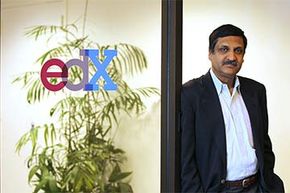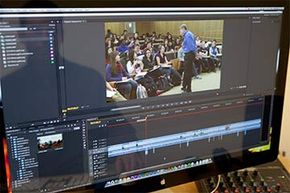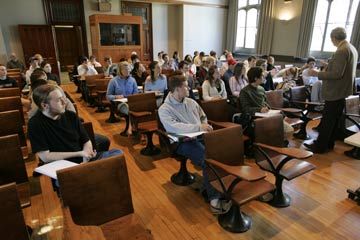While the Internet has proven immensely powerful for the massive distribution of cat videos, it has not fully realized its potential as an educational resource. Sure, colleges and universities around the world offer online classes, but most cost hundreds or thousands of dollars each. In response, a movement was born in 2008 to create massively open online classes, or MOOCs, in which courses from some of the world's finest universities would be offered online for free. Education was being democratized.
First came for-profit ventures like Udacity and Coursera, then MIT and Harvard partnered in 2012 to create edX, a nonprofit organization offering more than 200 free online classes from more than 45 partner universities in six core areas: business management, computer science, engineering, humanities, social sciences, and statistics and data analysis. In two short years, more than 2.5 million people of all nationalities, ages and cultural backgrounds have enrolled in edX courses [source: edX].
Advertisement
The attraction of taking a free college class taught by a renowned Harvard professor is undeniable. Before the advent of edX, your only options were to apply and get accepted to Harvard -- and cough up $65,000 per year -- or take an online class through Harvard Extension for the slightly more affordable price of $1,250 per undergrad course.
With edX, you can choose a class like David J. Malan's wildly popular "CS50 Introduction to Computer Science" and watch every lecture online, complete with graded homework assignments and exams, and walk away with a marketable new skill and a whole new perspective on the art of programming. For free!
What you will not walk away with from an edX course is an actual degree or even college credit. Critics of MOOCs point to dismal completion rates — only 0.8 percent of edX students who register for Introduction to Computer Science (the most popular course on the list) actually finish it — and argue that the mere dissemination of information is not the same as education [sources: Rees, Woolf]. True education, they say, requires a deep level of personal engagement that's impossible to replicate with message boards and auto-graded quizzes [source: Kolowich].
Keep reading to learn how it looks and feels to take an edX class, and how these free online courses could launch a new business model for higher education.
Advertisement




